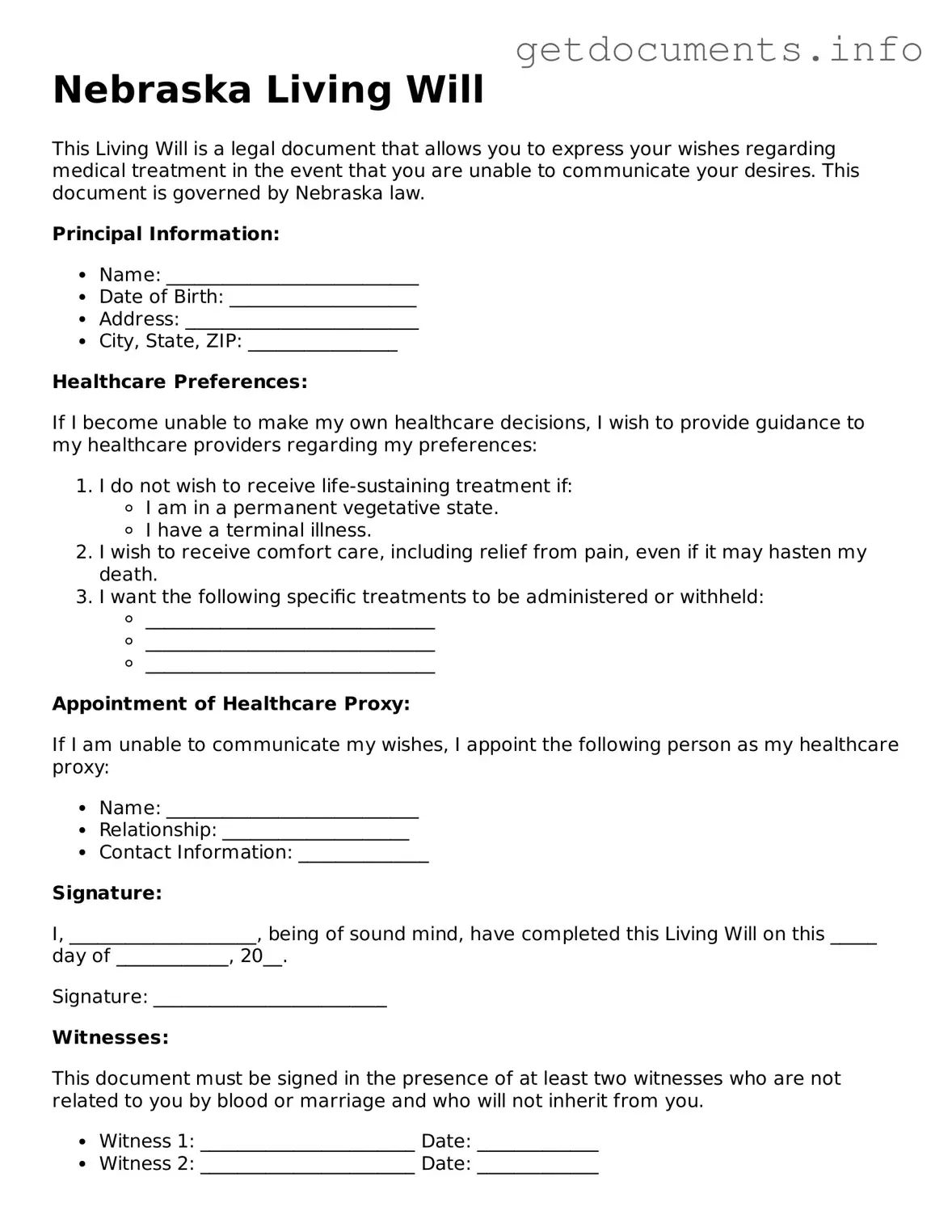Free Living Will Template for Nebraska
A Nebraska Living Will is a legal document that allows individuals to outline their preferences for medical treatment in case they become unable to communicate their wishes. This form ensures that your healthcare decisions are respected, providing peace of mind for both you and your loved ones. To take control of your healthcare choices, consider filling out the form by clicking the button below.
Access Living Will Editor

Free Living Will Template for Nebraska
Access Living Will Editor
Got places to be? Complete the form fast
Fill out Living Will online and avoid printing or scanning.
Access Living Will Editor
or
⇩ PDF File
